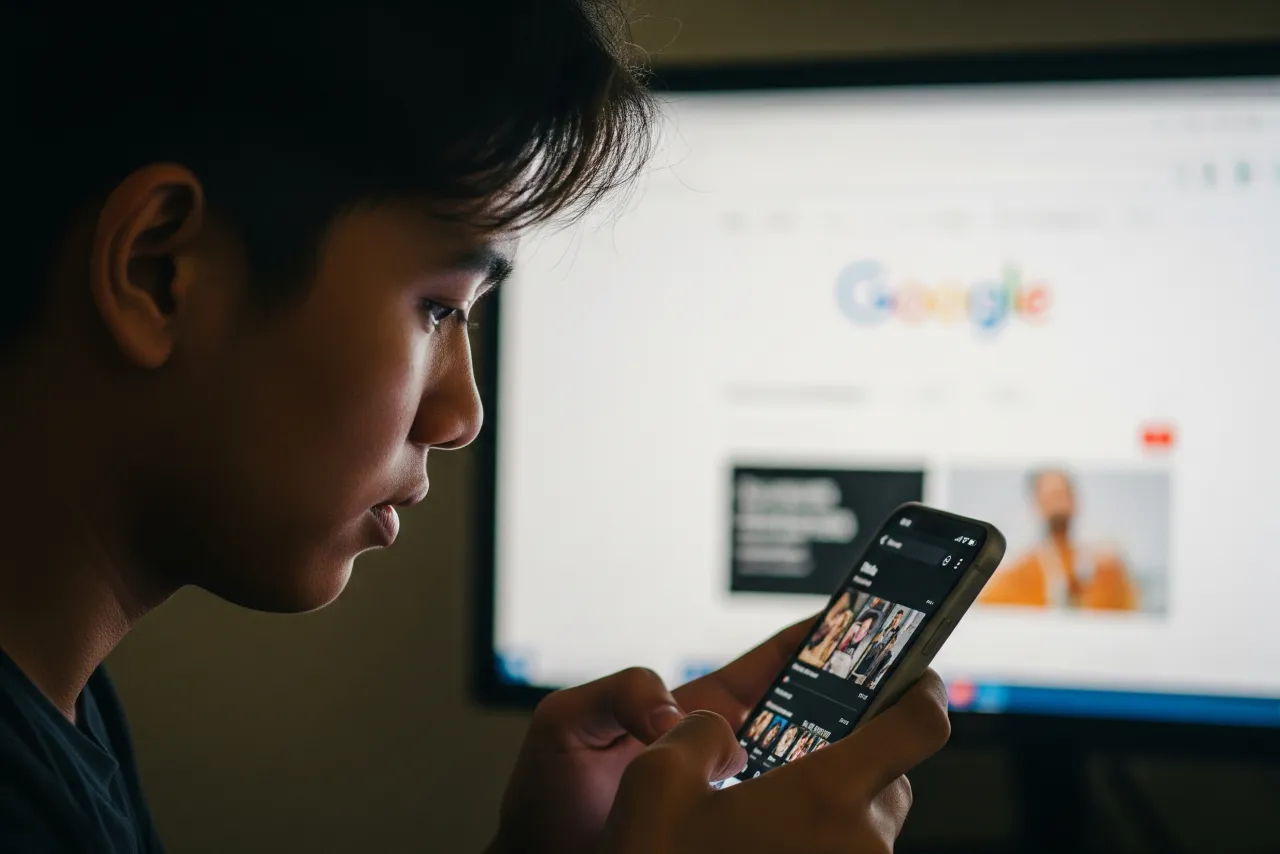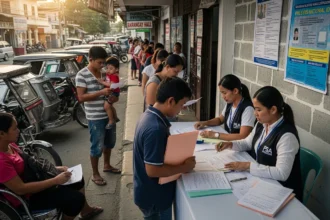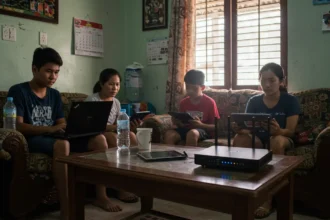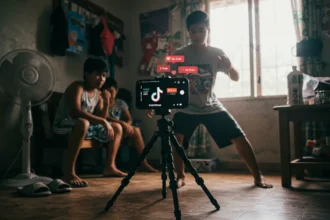Once upon a time, every Filipino looking for answers online typed their questions into Google. Whether it was recipes, health concerns, or “saan mura bumili ng phone,” Google was the undisputed gateway to knowledge. But in 2024, an unlikely contender is rising: TikTok.
- 📊 TikTok as a Search Engine: How It Works
- 📚 Why Filipinos Prefer TikTok Over Google
- 📰 What Are Pinoys Searching for on TikTok?
- 📊 Table 1: Comparison of Google vs. TikTok Search
- 🔍 The Risk of Misinformation
- 🌏 Global Trend: TikTok Search Beyond the Philippines
- 📊 Table 2: Types of Searches Dominated by TikTok vs. Google
- ✅ Benefits of TikTok Search for Filipinos
- ❌ Drawbacks and Dangers of TikTok Search
- ❓ Frequently Asked Questions (FAQ)
- ✨ Will Pinoys Swipe Instead of Click?
- 🔍 References
Yes, the same app once mocked as a lip-sync platform is now the go-to search engine for millions of young Pinoys. From how to cook adobo to where to find the cheapest flights, Filipinos are swiping and scrolling instead of clicking links. But why is this happening, and should Google be worried?
📊 TikTok as a Search Engine: How It Works
TikTok’s algorithm is designed to serve highly personalized content, and that includes search results. Unlike Google, which shows links to websites, TikTok gives you bite-sized videos directly answering your query. Searching “lutong bahay recipes” might show a 30-second clip of someone cooking sinigang, complete with visuals and comments from other Pinoys.
This visual and interactive experience makes information feel faster, more relatable, and more engaging. For Gen Z Filipinos raised on short-form content, watching feels more natural than reading. TikTok isn’t just entertainment anymore – it’s becoming a tool for discovery.
📚 Why Filipinos Prefer TikTok Over Google
There are several reasons TikTok is replacing Google in everyday searches:
- Visual-first learning: Recipes, DIY hacks, and beauty tips are easier to understand in videos.
- Localized content: TikTok pushes local creators, so results feel more “Pinoy” than Google’s global-first algorithm.
- Community validation: Comments and shares act as reviews, giving users confidence in the content.
- Speed: A 30-second TikTok beats reading a 1,000-word article for many users.
- Trust in influencers: Pinoys often trust relatable creators more than faceless websites.
For younger Filipinos especially, TikTok feels like a friend giving advice rather than a machine spitting out links.
📰 What Are Pinoys Searching for on TikTok?
Pinoys are using TikTok search across a wide range of topics, some predictable and others surprising.
- Cooking and recipes (lutong bahay, trending Korean food, budget meals).
- Health advice (though sometimes problematic due to misinformation).
- Study tips and tutorials.
- Beauty hacks and product reviews.
- Travel destinations and budget itineraries.
- News and political updates (in short explainers).
- Tech reviews, especially for affordable gadgets.
The trend shows TikTok has moved from being just a fun app to becoming a serious search destination for daily life.
📊 Table 1: Comparison of Google vs. TikTok Search
| Feature | Google Search | TikTok Search |
|---|---|---|
| Format | Text + links | Short videos with comments |
| Audience | Broad, all ages | Youth-heavy, Gen Z and millennials |
| Speed of Answers | Requires reading | Quick, visual demonstrations |
| Trust Source | Websites, experts | Influencers, peers |
| Localized Results | Limited | Highly localized, creator-driven |
🔍 The Risk of Misinformation
But TikTok-as-Google has its dangers. Unlike Google, which tries to rank credible sources, TikTok’s algorithm doesn’t distinguish between expert advice and unverified claims.
This means misinformation spreads faster. Health tips, financial advice, and even political propaganda can go viral without fact-checking. Filipinos must learn to be critical, asking: Is this creator reliable? Where did they get this info? Otherwise, TikTok’s convenience could come at the cost of truth.
🌏 Global Trend: TikTok Search Beyond the Philippines
It’s not just Pinoys turning TikTok into a search engine. Surveys in the U.S. and UK show that nearly 40% of Gen Z prefers TikTok or Instagram search over Google. In Southeast Asia, TikTok is also challenging YouTube as the top video platform.
This global trend shows TikTok’s power isn’t just entertainment but information control. And wherever young people lead, older generations often follow.
📊 Table 2: Types of Searches Dominated by TikTok vs. Google
| Search Type | TikTok Strength | Google Strength |
|---|---|---|
| Recipes | Short demos, localized cooking | Long, detailed instructions |
| Health Advice | Quick, popularized hacks | Verified, expert medical sites |
| Travel | Local vlogs, visual itineraries | Booking, official travel guides |
| Tech Reviews | Hands-on, casual feedback | Detailed specs, comparisons |
| News & Politics | Short explainers, trending updates | In-depth reporting, archives |
✅ Benefits of TikTok Search for Filipinos
- ✅ Fast and visual answers for everyday questions.
- ✅ Local creators make results relatable and Pinoy-specific.
- ✅ Community feedback builds trust.
- ✅ Perfect for quick learning like recipes or hacks.
- ✅ Expands opportunities for Pinoy content creators.
❌ Drawbacks and Dangers of TikTok Search
- ❌ High risk of misinformation.
- ❌ Over-reliance on influencers, not experts.
- ❌ Limited depth compared to Google.
- ❌ Not ideal for research-heavy or academic topics.
- ❌ Possible echo chambers, reinforcing biases.
❓ Frequently Asked Questions (FAQ)
Q1: Is TikTok really replacing Google in the Philippines?
Not entirely – but TikTok is gaining ground. Many Filipinos still use Google for research and transactions, but for quick, visual searches like recipes or hacks, TikTok is becoming the first stop, especially among Gen Z.
Q2: What are the risks of using TikTok for health or financial advice?
The biggest risk is misinformation. Unlike Google, TikTok doesn’t prioritize verified sources, meaning viral but false claims can spread quickly. Users should cross-check information with trusted sites.
Q3: Why do young Filipinos prefer TikTok search?
Because it’s visual, fast, and feels more personal. Gen Z grew up on video, so they find TikTok results more intuitive than reading long text articles on Google.
Q4: Does TikTok filter search results in the Philippines?
Yes, TikTok uses algorithmic moderation and sometimes censors content based on regional rules. However, this filtering is inconsistent and doesn’t always remove harmful misinformation.
Q5: Can TikTok replace Google for academic research?
No. While TikTok is good for quick overviews, it lacks the depth, citations, and reliability needed for academic work. Google and traditional resources remain essential for serious research.
Q6: How are Filipino businesses using TikTok search?
Many businesses use TikTok visibility to drive sales. Restaurants, travel services, and small brands rely on TikTok search to reach customers directly through trending videos.
Q7: Is Google worried about TikTok?
Yes. Google executives have admitted TikTok is eating into search traffic, especially for younger users. That’s why Google is trying to make search results more visual with features like YouTube Shorts integration.
Q8: What should Filipinos do to stay safe when using TikTok search?
Always fact-check, especially for health, finance, and political topics. Use TikTok for ideas and quick tips but rely on established, credible sources for important decisions.
Q9: Does TikTok search work better in Tagalog or English?
Both. However, TikTok’s algorithm boosts local-language content, so searching in Tagalog often delivers more Pinoy-relevant results than English-only queries.
Q10: What’s the future of search in the Philippines?
It will likely be hybrid. Filipinos may use TikTok for quick, casual answers but continue relying on Google for in-depth knowledge and transactions. The challenge is balancing speed with accuracy.
✨ Will Pinoys Swipe Instead of Click?
The rise of TikTok as a search engine in the Philippines signals a deep shift in how we look for knowledge. For younger Filipinos, learning through videos is natural, fast, and engaging. For older generations, it may feel risky or incomplete. But like it or not, TikTok is shaping the future of how information is consumed in the country.
Still, this trend comes with a price. Convenience doesn’t always equal credibility. TikTok’s algorithm rewards engagement, not accuracy, which means Filipinos risk trading depth for speed and expertise for virality. The danger is that misinformation can feel as trustworthy as truth when packaged in a catchy video.
Yet the Filipino spirit is resourceful. Just as Pinoys once mastered texting and social media faster than most countries, they can learn to balance TikTok’s convenience with critical thinking. The future isn’t about choosing TikTok or Google, but about becoming smarter, sharper digital citizens who know when to swipe and when to search.
So here’s the real question: Will Pinoys continue to click for truth, or swipe for speed? The answer may define the next decade of the Philippines’ digital life.
🔍 References
-
DataReportal – Digital 2025: The Philippines
-
Meltwater – Social Media Statistics in the Philippines (2025)
-
Impossible PH – The Fated Rise Of TikTok As PH’s Next Search Engine
-
Spiralytics – TikTok in the Philippines: Users, Statistics, Best Time to Post










